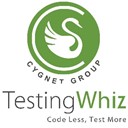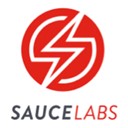Top XLT - Xceptance LoadTest Alternatives for Robust Software Testing
XLT - Xceptance LoadTest is a powerful tool designed for test automation and load testing in software development. Known for its integration with Selenium WebDriver, offering both a Script Developer UI and Java coding options, XLT provides features like test data management, module reusability, and dynamic data generation. While XLT is free for functional testing, many developers and QA teams look for alternatives that might offer different features, platforms, or community support. This article explores some of the best XLT - Xceptance LoadTest alternatives available today.
Best XLT - Xceptance LoadTest Alternatives
Whether you're seeking open-source flexibility, specialized mobile testing, or a no-code solution, this list has you covered. Dive into these top contenders that can enhance your test automation strategy, offering diverse functionalities to meet various project demands.

Selenium
Selenium is a widely recognized, free, and open-source suite of tools specifically for testing web applications. Its core strength lies in web testing and task automation across Mac, Windows, and Linux, making it a highly versatile alternative to XLT for those focusing purely on web-based functional testing. Selenium IDE, a Firefox add-on, allows for easy recording of user actions, providing a lower barrier to entry for test script creation.

Appium
Appium is an open-source test automation framework primarily used for native and hybrid mobile applications. Compatible with both Android and iOS (iPhone, iPad), Appium drives mobile apps using the WebDriver JSON wire protocol, similar to how XLT leverages WebDriver for its testing. This makes Appium an excellent XLT alternative for teams whose primary focus is mobile app testing and automation.

Micro Focus Unified Functional Testing
Formerly known as QuickTest Professional (QTP), Micro Focus Unified Functional Testing (UFT) is a commercial software for Windows designed to make test automation more efficient and foster collaboration between developers and testers. While XLT excels in its specific niche, UFT offers a broader, more integrated suite of developer tools, making it a strong commercial alternative for organizations seeking comprehensive functional test automation.

Codeception
Codeception is a free and open-source, full-stack testing PHP framework available for Mac, Windows, and Linux. It provides a unique approach to writing acceptance, functional, and unit tests, and notably supports Selenium testing. For PHP developers looking for a comprehensive testing solution that integrates well with their existing ecosystem, Codeception offers a compelling alternative to XLT, especially for those who prefer to code their tests.

Screenster
Screenster is a freemium, web-based, and self-hosted platform that stands out for its 10x faster UI testing without requiring a single line of code. It specializes in visual UI testing, cross-browser testing, and regression testing, with built-in CI and Selenium support. For teams seeking a visual and collaborative approach to test automation with less reliance on coding, Screenster presents a powerful and intuitive alternative to XLT.

TestingWhiz
TestingWhiz™ is a commercial, Windows-based Code-less Test Automation Tool designed for end-to-end testing, including functional, regression, database, big data, web UI, and cross-browser testing. Its key feature is requiring no coding, making it accessible to a wider range of QA professionals. For organizations prioritizing comprehensive test management and automation without extensive scripting, TestingWhiz offers a robust commercial XLT alternative.

Watir
Watir is an open-source Ruby library designed for automating tests that interact with a browser in a human-like way. Available for Mac, Windows, and Linux, it's a strong XLT alternative for developers and testers comfortable with Ruby. Its focus on browser interaction makes it highly effective for web application testing, providing a scripting-centric approach similar to XLT's Java coding option but within the Ruby ecosystem.

WatiN
WatiN (Web Application Testing In .Net) is a free and open-source library for Windows, inspired by Watir, and built for .NET environments. It offers a similar approach to web application testing as XLT but specifically caters to developers working within the Microsoft .NET framework. For .NET shops, WatiN provides a tailored and accessible way to automate web tests.

PhearJS
PhearJS is a free service, also available as an open-source solution, that renders dynamic webpages using PhantomJS to fetch, render, and return a JSON object. Available across Mac, Windows, and Linux, it's particularly useful for SEO-related tasks where rendering JavaScript-heavy pages is crucial. While not a direct functional testing tool like XLT, PhearJS can be a valuable component in a testing pipeline that requires analysis of dynamically rendered content.

Sauce Labs
Sauce Labs is a commercial, cloud-based platform for automated testing of desktop and mobile applications, compatible with Mac, Windows, Linux, Android, iPhone, and iPad. It offers features like cross-browser testing, cross-platform support, and strong integration with Selenium. Given XLT's perfect compatibility with Sauce Labs, Sauce Labs can also be considered a powerful, scalable environment for running tests, or a complementary tool for teams needing expansive cloud-based testing infrastructure beyond what XLT offers natively for execution.
The landscape of test automation tools is vast and diverse. While XLT - Xceptance LoadTest offers robust capabilities, especially for functional testing and its Selenium integration, these alternatives provide a range of options catering to different needs—from open-source flexibility and mobile-specific testing to no-code solutions and cloud-based execution. Carefully evaluate each option based on your project's specific requirements, team's skill set, and budget to find the best fit for your software testing strategy.